Veröffentlichungen des ISM-Lehrstuhls
Buchkapitel
Haug, M., Finze, N., and Gewald, H. (2026)
Unveiling the Digital Self – Exploring Avatar Identification in Online Gaming
Emerging Trends in Information Systems and Technologies. WorldCIST 2025. Lecture Notes in Networks and Systems, vol 1514. Springer, Cham.
View AbstractThe interest in online gaming and metaverse is increasing. Both digital technologies share the aspect of representing oneself via an avatar in online environments. To understand how individuals interact through avatars, we use the lens of existing identity theories and observe different levels at play when individuals identify with their avatars. We argue that these different layers have fundamentally different characteristics and play different roles in the identification and implications. Our preliminary findings show indications for different identity layers, on which we plan to conduct a qualitative study. We aim to provide more detail on new concepts, such as avatar-avatar identification, to better understand which layers are most salient and may influence identification.
Beimborn, D. and Rochholz, D.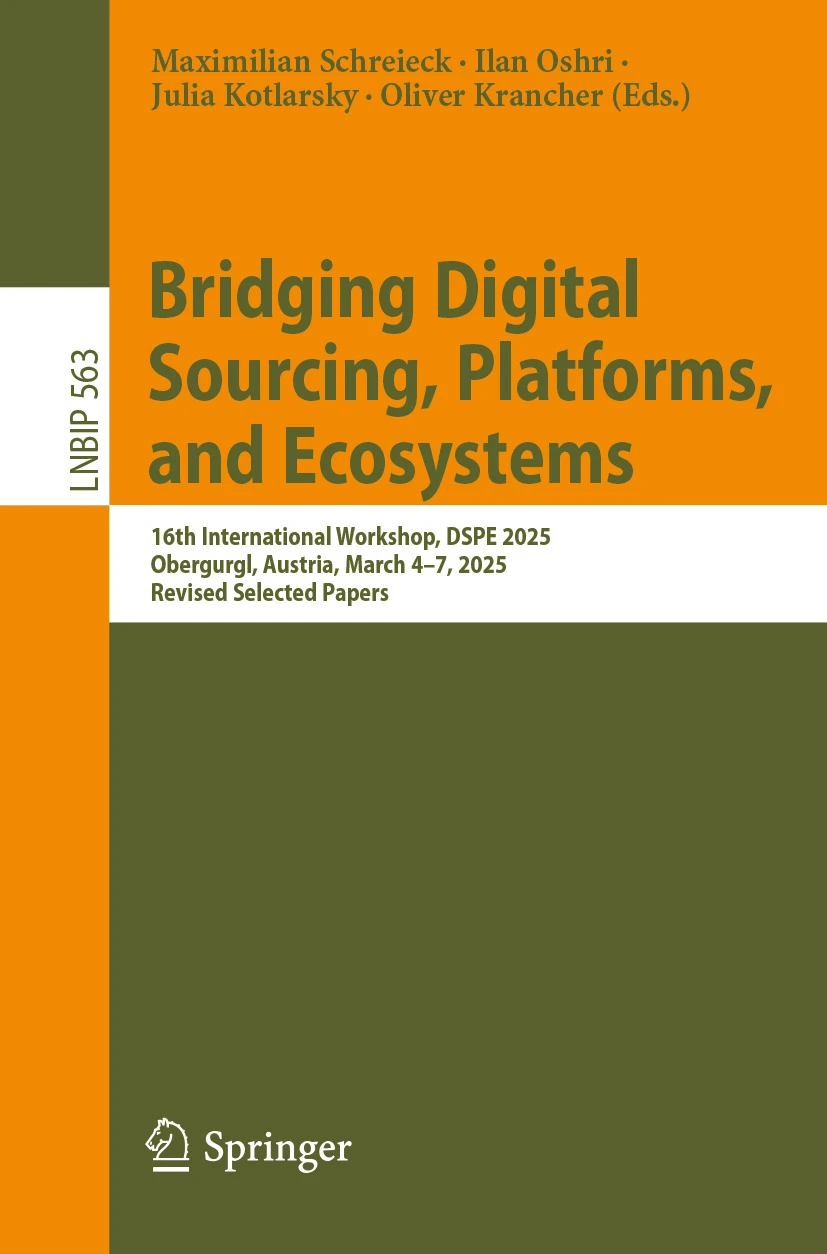 (2025)
(2025)
The Effect of Generative AI on Creating Software Complements for Digital Platforms
Bridging Digital Sourcing, Platforms, and Ecosystems : 16th International Workshop, DSPE 2025, Cham: Springer, S. 34–55
View AbstractThis study investigates the impact of Generative AI (GenAI) on the creation of software complements in digital platform ecosystems. Based on semi-structured interviews with software developers from both platform owner and complementor perspectives, we examine how GenAI is applied to platform boundary resources, to either support complement creation or boundary resource improvements. Using the inductive “Gioia approach”, we develop a data structure showing that GenAI improves platform access and expands platform owner and complementor capabilities. The findings offer four implications: GenAI can accelerate complement creation across platforms; it acts as a new type of boundary resource, merging technical and knowledge resources into conversational and code generating capabilities; it shifts developer focus from coding to the value of the complement; and it highlights the growing importance of managing and governing complement creation.
Müller, E., Thaler, J., and Beimborn, D. (2024)
(2024)
Digitale Mindsets in der digtialen Arbeitswelt am Beispiel von Führungskräften in öffentlichen Verwaltungen
Individuen in digitalen Arbeitswelten : Interdisziplinäre Perspektiven auf Individuum und Organisation, Springer Fachmedien Wiesbaden, S. 13-35
View AbstractDie digitale Transformation der Arbeitswelt und insbesondere die Veränderungen hin zu einer digitalen Verwaltung können nur im Zusammenspiel von Individuum, Organisation und Technologie gelingen. In diesem Zusammenhang wird dem sogenannten digitalen Mindset von in Organisationen tätigen Individuen zunehmend Aufmerksamkeit geschenkt, etablierte empirische Messungen fehlen jedoch bislang. Vor diesem Hintergrund analysiert dieser Beitrag digitale Mindsets von Führungskräften in öffentlichen Verwaltungen und den Zusammenhang dieser mehrdimensionalen Mindsets mit einer eher grundlegenden digitalen Technologiebereitschaft. Die Ergebnisse zeigen neun Dimensionen eines digitalen Mindsets sowie einen signifikanten Zusammenhang zwischen den beiden untersuchten Konstrukten. Die Schnittmenge zwischen den beiden Konzepten scheint in dieser Studie insbesondere in der Einstellung der Führungskräfte zur Nutzung und Anwendung digitaler Technologien zu liegen.
Beimborn, D. and Hildebrandt, Y.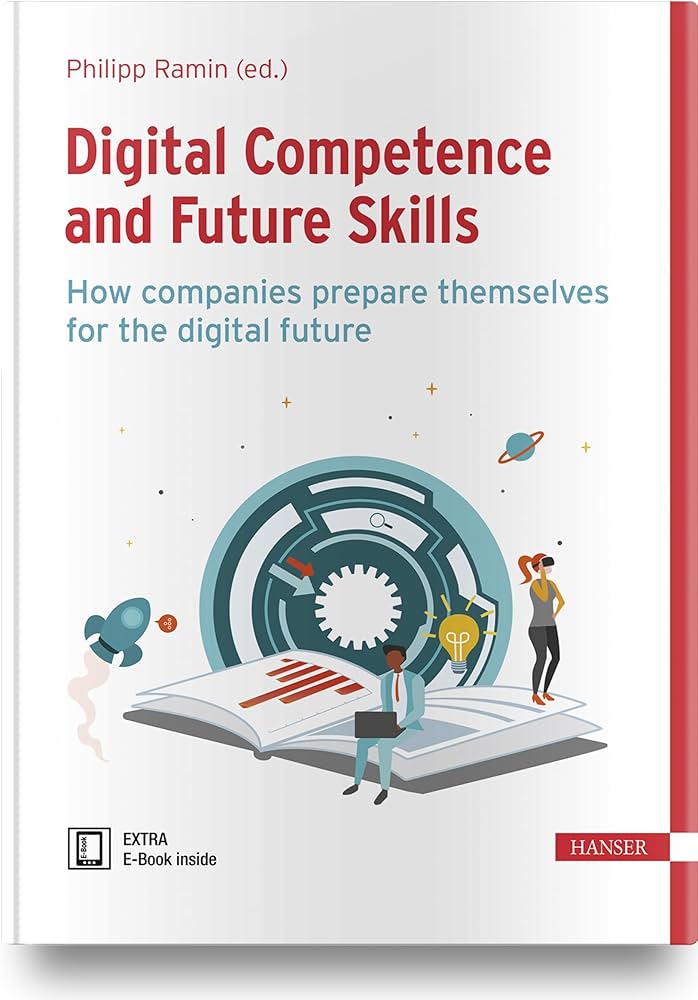 (2022)
(2022)
Defining and Measuring Digital Competence
Digital competence and future skills : how companies prepare themselves for the digital future, Carl Hanser Verlag GmbH Co. KG, S. 3-23
View AbstractDigital competence is a diffuse term that leaves a lot of room for interpretation. In order to build digital literacy among people, we must first understand how to make the term tangible. In particular, under the concept of digital participation, it is important to integrate as many people as possible into this discourse.
Therefore, we need to understand what the status quo looks like today. To this end, this section includes current study results around digital literacy among companies and also among the general population.
The chapters in this section of the book revolve around the following guiding questions:
- What is digital competence?
- How can digital competence be analyzed and measured?
- What are suitable dimensions for digital competence in the population?
- What does digital literacy look like in different countries in Europe?
- What is the state of digital transformation in general?
- How far are companies in building digital competence? What differences are apparent?
Hildebrandt, Y. and Beimborn, D.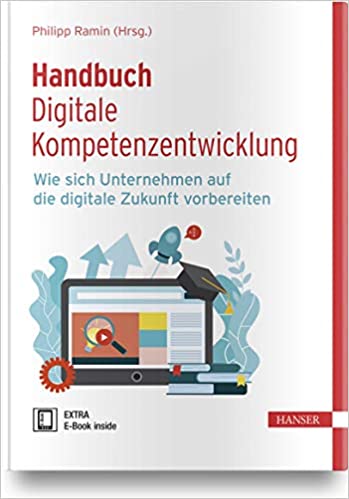 (2021)
(2021)
Wissenschaftliche Ansätze zur Identifikation und Messung digitaler Kompetenzen
Handbuch Digitale Kompetenzentwicklung: Wie sich Unternehmen auf die digitale Zukunft vorbereiten, Carl Hanser Verlag GmbH Co KG, S. 65-88
Meiser, S. and Beimborn, D.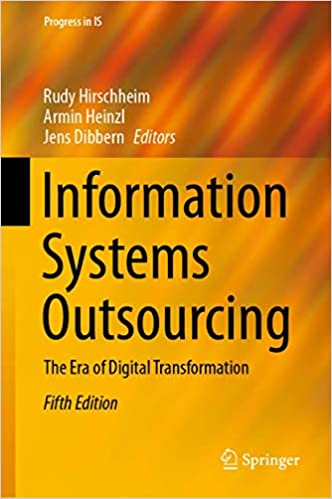 (2020)
(2020)
Innovation in Outsourcing : An Empirical Analysis of Outsourcing Vendors’ Innovation Approaches
In: Information Systems Outsourcing: The Era of Digital Transformation, Cham: Springer International Publishing, S. 83-100
Kloppenburg, M., Bergmann (geb. Kettenbohrer), J., Beimborn, D., and Bögle, M.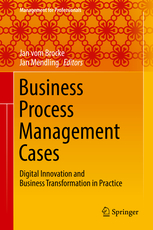 (2018)
(2018)
Leading 20,000+ Employees with a Process-Oriented Management System: Insights into Process Management at Lufthansa Technik Group
vom Brocke J., Mendling J. (eds) Business Process Management Cases. Management for Professionals. Springer, Cham: p.505-520
Bergmann (geb. Kettenbohrer), J., Kloppenburg, M., and Beimborn, D.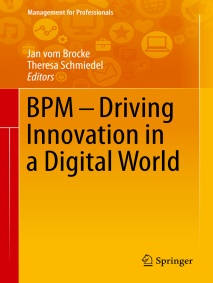 (2015)
(2015)
Driving Process Innovation: The Application of a Role-Based Governance Model at Lufthansa Technik
In: vom Brocke, J.; Schmiedel, S. (eds.) (2015): BPM - Driving Innovation in a Digital World, Management for Professionals; Springer International Publishing Switzerland: p.275-286
View AbstractMany stakeholders are involved in process operation and, consequently, also in process improvement and innovation. For the coordination of all stakeholders, an effective governance model with clearly defined roles and tasks can support process-oriented decision-making, which drives improvement and innovation. In this chapter, such a Business Process Management governance model is introduced. The role-based model FAR+ (Framework for Assignment of Responsibilities) provides precise assignment of process accountabilities and responsibilities. In the following, we apply FAR+ to an exemplary process at Lufthansa Technik. Based on this application, we derive implications for research and practice.
Wagner, H. and Moos, B. (2013)
Knowledge Management
Wiley Encyclopedia of Management, New York, NY : Wiley, J
Wiesinger, A., Beimborn, D., and Weitzel, T.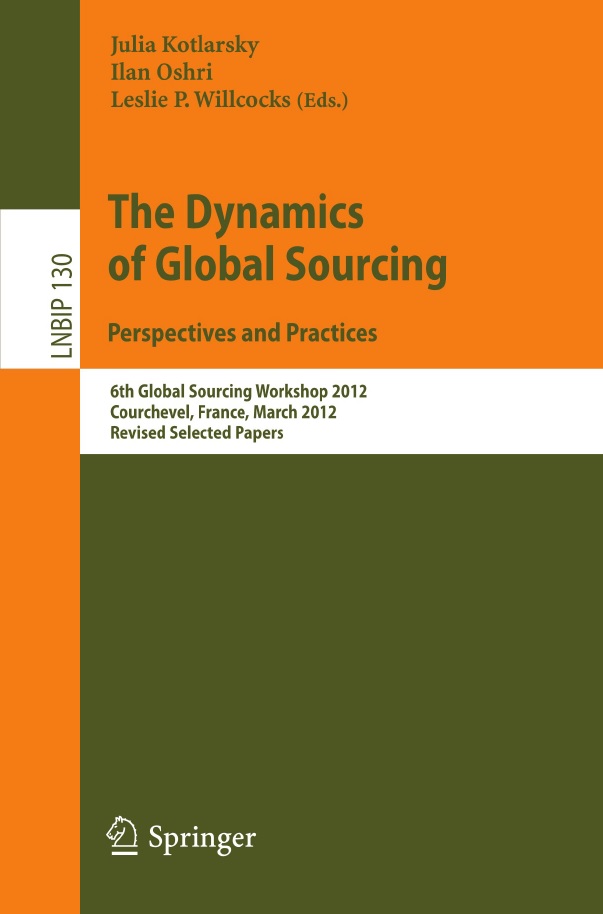 (2012)
(2012)
How Do Planned and Actual Interaction Structures Differ in Global Outsourcing Arrangements?
In: Kotlarsky, J., Oshri, I., and Willcocks, L. P. (eds.): The Dynamics of Global Sourcing: Perspectives and Practices, Springer Verlag, Berlin, 20-38.
View AbstractHow and why do actual interaction structures in global outsourcing arrangements differ from those originally planned? We use a social network perspective to analyze the structure of social interaction networks among operational staff and management of vendor and client firm in an outsourcing arrangement. We apply a case study approach to understand which interaction structures appear and whether they are in accordance with those structures formally defined in the outsourcing governance. We found that real interaction often differs from the plan and we provide theoretical explanations for understanding these deviations, thus contributing to the understanding of outsourcing governance and outsourcing relationship management.
von Stetten, A., Beimborn, D., Weitzel, T., and Reiss, Z.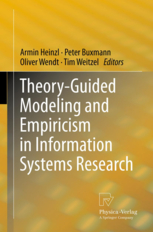 (2011)
(2011)
Managing the Impact of Differences in National Culture on Social Capital in Multinational IT Project Teams - A German Perspective
In: Heinzl, A., Buxmann, P., Wendt, O., and Weitzel, T. (eds.): Theory-Guided Modeling and Empiricism in Information Systems Research, Physica-Verlag, Heidelberg, 187-206. Erhältlich unter: http://www.amazon.de/Theory-Guided-Modeling-Empiricism-Information-Research/dp/3790827800/ref=sr_1_1?ie=UTF8&qid=1317916027&sr=8-1
Beimborn, D., Joachim, N., and Schlosser, F. (2011)
The Role of SOA for BPO Intention - Proposing a Research Model
In: Raj Sharman, H. Raghav Rao, T. S. Raghu (Eds.): Exploring the Grand Challenges for Next Generation E-Business, Lecture Notes in Business Information Processing, Springer, Berlin, 122-136
View AbstractHow does the availability of an SOA within a firm affect the potential of and intention for outsourcing business activities? Since one of the promises of SOA is to modularize the IT representation of business processes, it should facilitate business process outsourcing in terms of buying the provision of single business functionalities. In this paper, we develop a conceptual research model that theorizes the relationship between SOA and BPO intention.
Beimborn, D. (2010)
Standardisierung und Homogenisierung der Softwarelandschaft
In: Kurbel, K., Becker, J., Gronau, N., Sinz, E., Suhl, L. (eds.): Enzyklopädie der Wirtschaftsinformatik, Oldenbourg, 4. Auflage. Online unter: www.enzyklopaedie-der-wirtschaftsinformatik.de
Wüllenweber, K., Beimborn, D., Weitzel, T., and König, W. (2009)
The Impact of Process Standardization on Business Process Outsourcing Success
In: Willcocks, L., Lacity, M. (eds.): Outsourcing Information Systems, Sage Publications, 142-164. Erhältlich unter: http://www.amazon.de/Outsourcing-Information-Systems-Business-Management/dp/1848604459/
Beimborn, D. (2009)
Projektrisikomanagement
In: Kurbel, K., Becker, J., Gronau, N., Sinz, E., Suhl, L. (eds.): Enzyklopädie der Wirtschaftsinformatik, Oldenbourg. Online unter: www.enzyklopaedie-der-wirtschaftsinformatik.de
Wüllenweber, K., König, W., Beimborn, D., and Weitzel, T. (2009)
The Impact of Process Standardization on Business Process Outsourcing Success
In: R. Hirschheim, A. Heinzl, J. Dibbern (eds.): Information Systems Outsourcing: Enduring Themes, Global Challenges, and Process Opportunities, Springer, Heidelberg, 527-548
Beimborn, D. and Joachim, N. (2009)
Proposing the Relationship between IT Business Alignment and the Business Value of Service-Oriented Architectures in Financial Firms
In: D. Kundisch, D. J. Veit, T. Weitzel, and C. Weinhardt (eds.): Enterprise Applications and Services in the Finance Industry, Lecture Notes in Business Information Processing, Springer, Berlin, 78-93
View AbstractWhat is the business value of Service-Oriented Architectures (SOA) and how can we achieve it? This paper represents a conceptual piece of research which focuses on the impact of IT Business Alignment (ITBA) on the successful implementation of SOA, in terms of its business value. The contribution of this model is predominant in proposing a threefold effect of ITBA on achieving a successful implementation of SOA through the specific strategic needs defined by a particular firm in a specific industry, i.e., the banking industry. As a result, we show that the business strategy moderates the impact of SOA's general potentials on its actual business value and claim that this relationship is further moderated by ITBA, which must be thoroughly considered by practitioners deciding on introducing SOA in their firm.
König, W. and Beimborn, D. (2008)
Sourcing-Trends im KMU-Geschäft der deutschen Banken
Kaib, B. (ed.): Outsourcing in Banken. Gabler, Wiesbaden, 183-210
König, W., Beimborn, D., Martin, S., Blumenberg, S., and Homann, U. (2007)
Mittelständler und Banken: Einflussfaktoren der Bereitschaft zur Kooperation auf der Basis eingebetteter Informationssysteme
Loos, P.; Krcmar, H. (eds.): Architekturen und Prozesse. Strukturen und Dynamik in Forschung und Unternehmen, Springer, Berlin
Weitzel, T., Wendt, O., Beimborn, D., and König, W. (2006)
(2006)
Network Effects and Diffusion Theory - Extending Economic Network Analysis
Jakobs, K. (ed.): Advanced Topics in Information Technology Standards and Standardization Research, Volume 1, Hershey, PA, ISBN 159140939-X. Erhältlich unter: http://www.igi-global.com/bookstore/chapter.aspx?TitleId=4668
König, W., Beimborn, D., Martin, S., and Homann, U. (2005)
Capability Map: Eine alternative Darstellungsweise für Unternehmensprozesse aus ressourcenorientierter Sicht
Beyer, J.; Mönch, L. (Hrsg.): Aspekte der Wirtschaftsinformatik: Methoden, Werkzeuge und Anwendungen, SCS-European Publishing House
View AbstractDie vorliegende Arbeit befasst sich mit einem neuen Modellierungs- und Analysekonzept für Geschäftsprozesse, das aus zwei Unternehmenstheorien, der Resource-based Theory (RBT) und der Competence-based Theory (CBT), entwickelt wurde. Das Konzept versteht sich als eine zu den traditionellen, prozessbasierten Darstellungs- und Analysetechniken komplementäre Methode, die das Management bei der strategischen Entscheidungsfindung - z. B. über das Outsourcing bestimmter Teilprozesse - unterstützen soll. Das als "Capability Map" bezeichnete Konzept bietet einen neuartigen Ansatz zur strategischen Evaluierung der Komponenten von Geschäftsprozessen und erlaubt deren Darstellung als ein Netzwerk von sog. Capabilities. Unter dem Begriff "Capability" verstehen wir das Leistungsvermögen (materielle und immaterielle sowie intellektuelle Ressourcen) eines Unternehmens, eine gewisse Geschäftsfunktion auf beliebiger Granularitätsebene auszuführen. Die Anwendung der Capability Map auf die Prozesse einer deutschen Universalbank zeigen die Nutzenpotenziale dieses neuen Konzeptes auf.
König, W. and Beimborn, D. (2004)
Zur Integrationstiefe in der zwischenbetrieblichen Zusammenarbeit
Stanoevska-Slabeva, Katarina (Hrsg.): Digital Economy - Anspruch und Wirklichkeit, Heidelberg, Berlin, New York (Springer)
Weitzel, T., Beimborn, D., and König, W. (2004)
Outsourcing von Finanzprozessen
Management-Kompass IT-Strategie F.A.Z.-Institut , S. 12-17
View AbstractEine empirische Studie des Frankfurter E-Finance Lab zeigt, wie Unternehmen
unterschiedlicher Branchen durch modernes Financial Chain Management ihre IT-Finanzprozesse effizient gestalten. Weitere Beiträge analysieren die Kosteneffekte durch IT-Transformation, Sourcingalternativen und IT-Investitionen im Mittelstand.
Perscheid, G. and Moormann, J. ()
Geschäftsmodelle auf dezentralen Plattformen, in: Dieter Knörrer, Marcus W. Mosen, Jürgen Moormann, Dietmar Schmidt (Hrsg.): Digitale Ökosysteme: Strategien, KI, Plattformen
Frankfurt am Main: Frankfurt School-Verl.
 (2025)
(2025) (2025)
(2025) (2024)
 (2022)
(2022) (2021)
(2021) (2020)
(2020) (2018)
(2018) (2015)
(2015) (2012)
(2012) (2011)
(2011) (2006)
(2006)